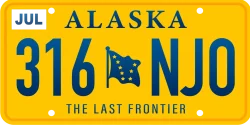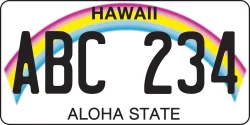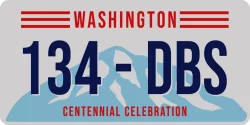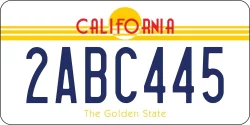Home » IRS Mileage Rates by State » Oregon Mileage Rate
Last updated: September 24, 2025
Understanding the IRS Mileage Rate for Oregon is essential for Oregonians who want to maximize tax deductions on their business, medical, or charitable driving. For instance, a round trip from Portland to Salem covers about 100 miles, potentially qualifying for significant deductions.
In this article, we’ll explain what Oregonians need to know about the IRS mileage rates and learn about the solutions MileageWise offers to maximize your deductions.
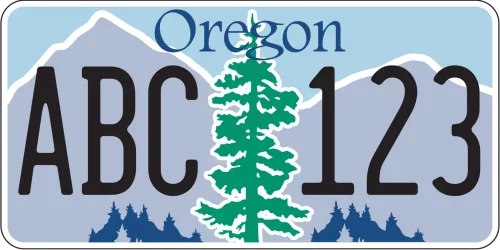
Table of Contents
Summary
- IRS Mileage Rates for 2025: $0.70/mi for business-related driving, $0.21/mi for medical/military moving purposes, and $0.14/mi for charitable activities.
- Deduction Opportunities in Oregon: Significant deductions can be realized with long-distance routes, such as a round trip from Portland to Eugene.
- Employer Reimbursement Requirements: Oregon law does not mandate reimbursement for all business travel costs, including mileage, but employers may choose to reimburse for these costs (in line with IRS mileage rates).
- MileageWise Solution Benefits: Using MileageWise, Oregonians can effortlessly import their Google Maps Timeline to generate IRS-compliant mileage logs, helping them maximize their tax deductions.
IRS Mileage Rate for Oregon: Deduction Potential in a Day
Klamath Falls → Ashland (65 miles)
Ashland → Jacksonville (17 miles)
Jacksonville → Klamath Falls (84 miles)
Total miles: 166 miles
Deduction: 166 × $0.70 = $116.20
La Grande → Baker City (45 miles)
Baker City → Ontario (74 miles)
Ontario → La Grande (117 miles)
Total miles: 236 miles
Deduction: 236 × $0.70 = $165.20
Essential Oregon Reimbursements You Shouldn’t Miss
While Oregon law requires employers to ensure that unreimbursed business expenses do not lower an employee’s wage below the minimum wage, it does not mandate that private employers reimburse for all business travel expenses, including mileage. Employers may choose to reimburse for these costs, often in line with IRS mileage rates, but it is not legally required.
Remember: Commuting is not deductible. Travel between home and your regular workplace doesn’t qualify, only business-related travel between work sites counts.
This page serves as general information. Consulting a tax professional is advisable for your specific situation. For nationwide details, refer to our IRS Mileage Rates page.
2025 Mileage Rate
- Business Mileage Rate: The standard rate for driving related to business activities: $0.70/mi
- Medical/Military Moving Mileage Rate: This rate applies to medical trips and travel for active-duty military members: 0.21/mi
- Charitable Mileage Rate: For trips taken in support of charitable organizations: $0.14/mi
What is the IRS Mileage Rate worth in Oregon?
| Route (one-way) | Approx. miles | 2025 value |
|---|---|---|
| Portland → Salem | 50 mi | $35.00 (RT $70.00) |
| Eugene → Bend | 130 mi | $91.00 (RT $182.00) |
| Medford → Grants Pass | 30 mi | $21.00 (RT $42.00) |
| Salem → Eugene | 80 mi | $56.00 (RT $112.00) |
| Portland → Astoria | 95 mi | $66.50 (RT $133.00) |
| Bend → Redmond | 15 mi | $10.50 (RT $21.00) |
| Corvallis → Albany | 15 mi | $10.50 (RT $21.00) |
| Medford → Ashland | 12 mi | $8.40 (RT $16.80) |
| Portland → Hood River | 60 mi | $42.00 (RT $84.00) |
| Bend → Sisters | 25 mi | $17.50 (RT $35.00) |
Calculations reflect the 2025 business rate of $0.70/mi.
Oregon’s Regions and Their Unique Driving Conditions
- Western Oregon (Portland Metro Area): Busy urban roads with significant traffic, short driving distances, frequent stops.
- Central Oregon (Bend and surrounding areas): Longer stretches of scenic highways, with outdoor industry trips and tourism-related drives.
- Southern Oregon (Medford and Grants Pass): Important for agriculture and trade, distances can vary significantly to reach clients.
Who Gains the Most from Mileage Reimbursement?
- Real estate agents
- Mobile healthcare providers
- Construction and trade professionals
- Field sales representatives
- Rideshare and delivery services
- Tourism and outdoor activities

Meeting Oregon’s Driving Challenges with MileageWise Solutions
For drivers in Oregon, where scenic routes meet the bustling traffic of city streets, maintaining an accurate mileage log is essential. A complete mileage log is crucial for adhering to IRS requirements and maximizing deductions. To address this task, an efficient and precise system is required.
MileageWise brings you three solutions designed to cater specifically to these driving needs, ensuring you maintain compliance while capturing every possible deduction.
1. Google Maps Timeline Import: Your Comprehensive Solution
With MileageWise, you can convert your Google Maps Timeline into IRS-compliant mileage logs. If you’ve overlooked past drives, just import your Timeline data, and we’ll handle compliant formatting and audit-proofing for you!
2. AI Wizard Mileage Log Generator: Rebuilding Made Easy
If your Timeline is missing, our AI Wizard Mileage Log Generator can recreate your driving history based on driving patterns. Avoid the hassle of forgetting trips as our AI takes the guesswork out of recovery.
3. Looking Ahead: MileageWise Mileage Tracker App
Our mileage tracker app delivers a user-friendly solution for your tracking needs, ensuring all your miles are recorded accurately, so when tax season rolls around, you’re ready, armed with precise logs.
A Quick Oregon Story: Local Proof
A sales representative in Portland frequently traveled to Salem and Bend for client meetings. After realizing she forgot to log several business trips due to the busy season, she utilized MileageWise’s Google Maps Timeline import feature. This allowed her to retrieve a complete and compliant mileage log, saving her time while keeping her deductions secure.
Conclusion
It’s essential to stay compliant with IRS guidelines and understand Oregon’s laws regarding mileage reimbursements. Given the diverse driving conditions across the state, maintaining accurate, audit-ready logs is not an easy task, but it is vital for maximizing reimbursement.
To make things simple, MileageWise offers you three solutions:
- The Google Maps Timeline Import transforms your driving history into a compliant log.
- If your Timeline is missing, our AI Wizard Mileage Log Generator can help reconstruct your records.
- Moving forward, the MileageWise mileage tracker app effortlessly captures your journeys automatically.
MileageWise’s powerful tools ensure Oregon drivers can manage their past, present, and future mileage with utmost confidence.
AI Logs & Google Timeline Import
Try MileageWise for free for 14 days. No credit card required!
FAQ
What expenses can I deduct using the IRS mileage rate for Oregon?
You can deduct expenses related to business-related driving, medical trips, and charitable service work. Each of these categories has specific IRS mileage rates that can significantly reduce your taxable income. Business: $0.70/mi; Medical/Moving (active-duty military): $0.21/mi; Charitable: $0.14/mi.
Is commuting deductible?
No. Travel between home and your regular workplace counts as commuting and isn’t deductible.
How often is the IRS mileage rate for Oregon updated?
The IRS typically reviews and updates the mileage rates annually. It’s important to stay informed about any changes, as these adjustments can impact your deductions for the upcoming tax year.
How can I ensure my mileage logs are IRS-compliant?
To ensure your mileage logs are IRS-compliant, maintain detailed records that include the date, purpose of the trip, starting and ending locations, and the mileage driven. MileageWise can help automate this process to ensure accuracy and compliance.
What happens if I don’t keep accurate mileage records?
If you fail to maintain accurate mileage records, you risk losing out on potential deductions. The IRS requires substantiation of any claimed deductions, so having well-documented logs is crucial to ensure you’re not subject to penalties or audits.
Is it possible to reconstruct a previous mileage log?
Absolutely! You can recreate a mileage log for previous periods using our Google Maps Timeline import feature or the AI Wizard Mileage Log Generator, ensuring that your records remain compliant.
Do tolls and parking fees count toward my mileage deductions?
No, tolls and parking fees are treated as distinct expenses and should be documented separately alongside your mileage logs for accurate reporting.



